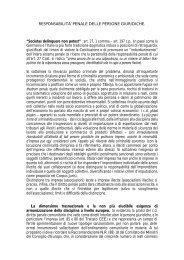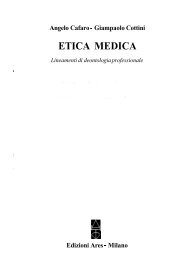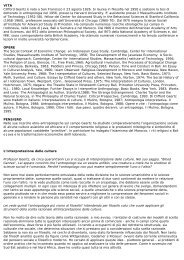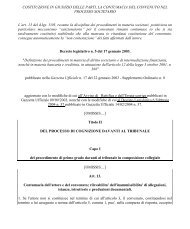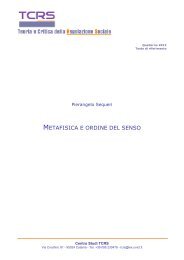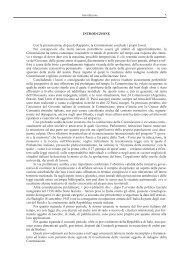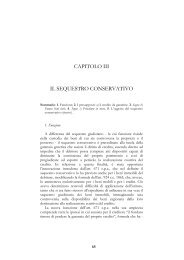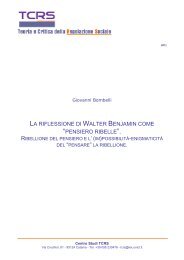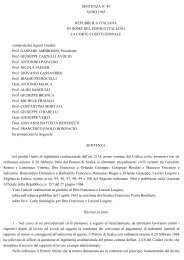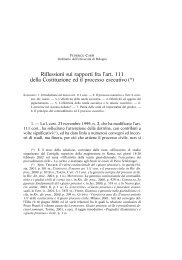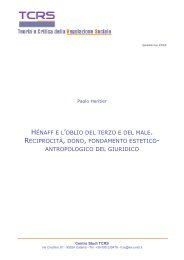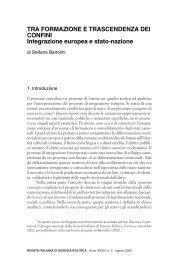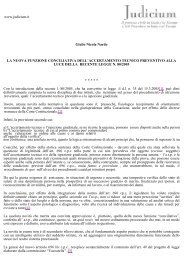FOGLI DI LAVORO per il Diritto internazionale 3 ... - Giurisprudenza
FOGLI DI LAVORO per il Diritto internazionale 3 ... - Giurisprudenza
FOGLI DI LAVORO per il Diritto internazionale 3 ... - Giurisprudenza
You also want an ePaper? Increase the reach of your titles
YUMPU automatically turns print PDFs into web optimized ePapers that Google loves.
<strong>FOGLI</strong> <strong>DI</strong> <strong>LAVORO</strong> <strong>per</strong> <strong>il</strong> <strong>Diritto</strong> <strong>internazionale</strong> 3/2008<br />
coverage of the topic both in legal literature and in the general<br />
media. The Government pointed out that the case had been<br />
heard by the full Chamber – as opposed to a panel of three<br />
judges – which would not have been the case if the<br />
constitutional issue addressed had been simple, and that the<br />
applicant associations had submitted extensive material to the<br />
Federal Constitutional Court.<br />
52. The Government emphasised the Federal Constitutional<br />
Court's special role as “guardian of the Constitution” as<br />
recognised by the Court in its previous case-law. They further<br />
stressed the unique political background of German<br />
reunification, which had occurred just one and a half years<br />
before the present complaint was lodged. By way of example,<br />
they presented a list of twelve decisions relating to reunification<br />
issues taken by the Federal Constitutional Court's first Chamber<br />
between July 1991 and July 1997. Furthermore, that court had<br />
had to decide on a great number of other complaints of<br />
considerable political and social importance as they concerned a<br />
great number of citizens, which had been given priority.<br />
53. The Government emphasised that the length of the<br />
proceedings could not be attributed to the fact that the Federal<br />
Constitutional Court was overburdened or that its ab<strong>il</strong>ity to<br />
function was restricted. It pointed out that that court had taken<br />
adequate steps to address the problem of its extraordinary<br />
workload following German reunification, ensuring that an<br />
average of some 88 % of constitutional complaints received<br />
between 1994 and 2005 had been dealt with within the first two<br />
years and that only 4.4 % were st<strong>il</strong>l pending after more than four<br />
years.<br />
54. According to the Government, the applicant associations<br />
themselves had caused delays in the proceedings before the<br />
Federal Constitutional Court by submitting their comments to<br />
the Government's submissions of 4 November 1992 only eleven<br />
months later, namely on 21 September 1993. Furthermore, they<br />
had submitted extensive written observations throughout the<br />
proceedings.<br />
55. As to what was at stake for the applicant associations, the<br />
Government considered that the level of alleged interference<br />
with their freedom of religion was comparatively low. It was<br />
further diminished by the fact that the Government, following<br />
191



